The Department of Homeland Security (DHS) announced a final rule that introduces significant changes to the H-1B visa program. The new rule goes into effect on January 17, 2025, just three days before the new Trump Administration takes office. Here are the highlights:
Change to the definition of “Specialty Occupation.”
DHS is changing the definition of “specialty occupation” to ensure that the H1B job position requires relevant education in that specialized field. For example, under the new definition, an H1B job requirement that says a general MBA or general engineering degree will not be sufficient to qualify for an H1B specialty occupation. The required specialized studies must be directly related to the position. A position is not a specialty occupation if attainment of a general degree, such as business administration or liberal arts, without further specialization, is sufficient to qualify for the position.
F1 Visa Applicants Cap Gap to be extended until April 1st of Next Year
Currently, for F1 Students who apply for an H1B petition as a change of status(COS), instead of consular processing, the cap gap option that allows them to work until they get a decision on their H1B petition is given only until October 1st.
Due to delays in adjudication of the H1B petition, many students cannot work beyond October 1st due to the current rule. The final rule extends the cap-gap work authorization until April 1st of next year to avoid these issues.
For example, if you are filing for an H1B Visa petition for the FY 2026 season in June 2025 and availing of the cap gap, then under the new provision, you can continue to work beyond October 1st, 2025, until April 1st, 2026, while you wait for the decision on your petition from USCIS.
Someone with a controlling interest can sponsor his own H1B and do business tasks
In the past, due to employer-employee relationship clauses and historical policy guidance reasons, many were not able to sponsor H1B or run their own companies. The final rule of H1B modernization encourages entrepreneurship by enabling foreign national entrepreneurs with a controlling interest in the company(owning more than 50% of the company) to run their company as a founder while doing regular specialty occupation tasks required for the H1B. Thus, for example, if a person is a software developer and owns more than 50% of a software company, he must spend more than 50% of his time engaged in software development. The remainder can be spent on directing and growing the company. For such beneficiary-owned entities, USCIS will only issue 18 months of initial approval and the first extension. After that, the subsequent extensions would be standard with 3-year extensions.
Inspections, Evaluations, Verifications: Site Visits No longer Voluntary
Participating in USCIS FDNS site visits was voluntary in the past. It was up to the employee to voluntarily participate or choose not to cooperate, and there was no impact of not participating or cooperating during the site visit.
As part of this final rule, DHS is changing voluntary participation to mandatory. Under the new changes, USCIS may conduct site visits on-site, at your home, at a client location, interview the managers, verify records, etc. Failure to cooperate or provide all the details as requested by the USCIS officer could result in consequences such as denial or revoke of your H1B petition.
Approval with Submitted Expired Documents, Extend Validity Period
Currently, in situations such as Request for Evidence (RFE) or Motion to re-open or reconsider, during the decision time due to processing delays, the requested dates of employment would have passed.
As part of this final rule, DHS may issue an RFE and allow employers to change or update the requested dates of employment allowing them to change the dates as needed. As needed, USCIS may request relevant updated documents such as updated H1B LCA, if the petition is eligible for approval. If no RFE is issued or the employer does not respond, USCIS will issue approval for the given dates in the petition.
H1B Cap Exemption Flexibility for Universities, Research Organizations
DHS wants to give more flexibility to companies to utilize the H1B cap exemption petition under universities, non-profit research, or government research institutions. Under the new rule, if an H1B applicant works for at least half of the time under the cap-exempt category sponsored entities such as universities or non-profit research entities, he can apply under the cap-exempt H1B category. It does not have to be 100% of the time to qualify for the cap-exempt category. For example, if someone has filed for H1B under cap exempt under a non-profit research organization, then he only needs to work for at least 50% of their time for that non-profit research organization. For the remaining time, he can work in a for-profit company such as a hospital or any other company.
Deference to previous decisions for H1B approvals
The deference policy provides consideration of previous approvals when adjudicating a petition, instead of reviewing it as a new petition. Such deference is limited to H1B approvals when filing for extensions, where the same parties are involved, and the facts related to the petition remain the same as they existed in the past. In such cases, USCIS can use the deference policy to adjudicate the extensions without wasting too much time.
Now, the big question: Will the Trump Administration change this brand new rule?
The Trump administration will take office on January 20, 2025. By they must go through the same regulatory process to make any changes, which takes time. But, as we saw in his first term, President Trump implemented stricter norms in the form of policy memos, which can take effect quickly.
We do not know, at this point, if the Trump administration will act immediately to make changes to the H1B program or not. High-skilled immigration is an important item for the Trump Administration based on 47’s past interviews and views. But, we do not know if, or how, the H-1B program will be changed. Given past experience, it is likely that it will, and it will probably include measure that will make hiring foreign workers more difficult and subject such applications to heightened scrutiny.


